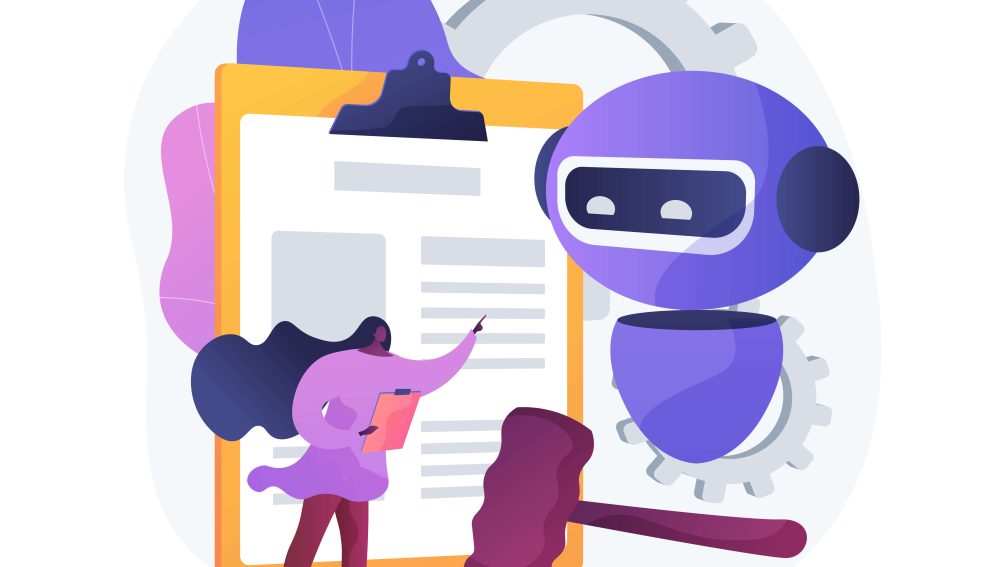What Happens When AI Decisions Break the Law? A Guide

Artificial intelligence is woven into daily business life—sorting resumes, setting prices, granting loans, and even making product recommendations.
However, when an AI system’s automated decisions cross the line and violate established laws, business owners can face regulatory scrutiny, lawsuits, and irreversible reputational harm.
Understanding what happens when AI decisions break the law is vital for small business owners, executives, and anyone who relies on automated technology.
How Do AI Decisions Break the Law?
AI tools are programmed to analyze data and automate decisions. Yet, legal violations often arise when those decisions produce outcomes that are discriminatory, deceptive, or fail to comply with specific statutes.
For example, an AI-based hiring system that filters out candidates by age or ethnicity, a chatbot that promises services that don’t exist, or a loan approval engine that denies credit based on prohibited factors all cross clear legal lines.
AI does not provide a shield from liability. Businesses remain fully responsible for the technology they deploy, whether it’s custom software or a third-party product.
A recent surge in regulatory interest means that algorithms are being audited more frequently—businesses that fall short can face investigations.
Proactive review and regular legal consultation, such as through Attorneys, is one step toward safeguarding against these exposures.
What Legal Consequences Can Businesses Face for Unlawful AI Decisions?
When AI-driven actions break laws, businesses face a spectrum of consequences—civil penalties, government fines, regulatory actions, and private lawsuits.
The severity often depends on the impact and the business’s response.
If an AI tool systematically discriminates in hiring or housing, for example, government agencies may initiate enforcement actions.
Class-action lawsuits from affected individuals or groups can follow. Publicity from such events can damage customer trust.
In some cases, businesses may be ordered to change practices, pay damages, or submit to long-term oversight.
Companies also risk contract disputes if AI tools are used in ways not disclosed or agreed upon. Reading Legal news reveals a growing list of businesses entangled in such conflicts.
How Can You Identify and Prevent AI Legal Risks in Your Business?
You will be surprised to know that AI can actually learn bad decision-making behaviors by analysing your past data. Can’t believe it. Right?
But it is actually true. AI can learn wrong decision-making if your historical data has instances of mistakes and errors. So, it is important to keep these technologies monitored.
When you properly monitor the functions of the AI technologies, you get to identify the legal issues with its decision-making in the initial stages.
Moreover, with the identification of the issues, you can counter them by taking the proper measures to rectify these AI-related issues.
Additionally, you should not solely rely on the automated systems to make decisions on your behalf for your business.
Since the AI lacks the rationality and emotional intelligence of human minds, you need to monitor and audit its decisions to ensure they are not illegal.
Also, conforming to the legal regulations and standards of the industry can help you to keep your business going in the long term.
So, practice transparency, accountability, fairness, and legal usage of automated systems. This way, you can prevent AI-related issues.
How to Create Policies to Avoid the Risk of AI-Related Liability?
To ensure that your business doesn’t face the severe consequences of AI decisions breaking the law, you should have policies.
With proper company policies, you can focus on making decisions based on legal compliance and risk mitigation provisions. So, you can avoid getting tangled up in legal issues.
Moreover, with the policies, you can evaluate the AI decisions to make the most out of the technology without taking your business behind bars.
To do this, you need to set clear guidelines for vendor selection, procedures to test and monitor the AI technologies, and strategies to address complaints. This way, you can also manage the errors.
Additionally, when you have a good policy against AI technology breaking laws, you create a unique brand value.
And, your clients and investors visualize these policies to understand how much your business values authenticity and legal compliance. So, they readily engage with your business.
Furthermore, you can also train your employees about the emerging AI technologies and how it is evolving the industrial landscape.
This will help in keeping them aware of the legality associated with AI decisions. Moreover, your employees can maintain compliance with the legal standards and strengthen the business position.
Which Actions Should Businesses Prioritize to Protect Themselves?
AI’s rapid evolution means legal risks are also shifting. To minimize exposure when deploying AI tools, prioritize the safeguards below.
- Review Data Sources: Always investigate how your AI models are trained and ensure data sets don’t encode bias or illegal criteria.
- Audit Outcomes Regularly: Set up routine checks to evaluate whether your AI is producing fair, legal, and accurate results.
- Consult Legal Counsel: Work with attorneys who specialize in AI or technology law to review new systems before launch.
- Respond Quickly to Concerns: Act swiftly if users, customers, or employees report unfair or unlawful outcomes, documenting each step.
- Maintain Clear Communication: Clearly inform users and stakeholders about the role of AI in business processes, especially in areas regulated by law.
Why Is Legal Guidance Indispensable in the Age of AI?
Business leaders who rely on AI must remain vigilant. Laws around AI, discrimination, consumer protection, and privacy are evolving quickly.
Missteps may be unintentional, but regulators and courts hold businesses accountable regardless of intent.
Having legal guidance means staying ahead of new rules, interpreting them correctly, and building compliance into every stage of AI use.
In a digital world, one unchecked algorithm can trigger waves of legal trouble.
Regular reviews, accountability measures, and consultation with legal professionals can make the difference between a streamlined business and one facing damaging claims or fines.
AI delivers value, but only when you respect the rules and regulations from the start.
READ MORE:


























Leave A Reply